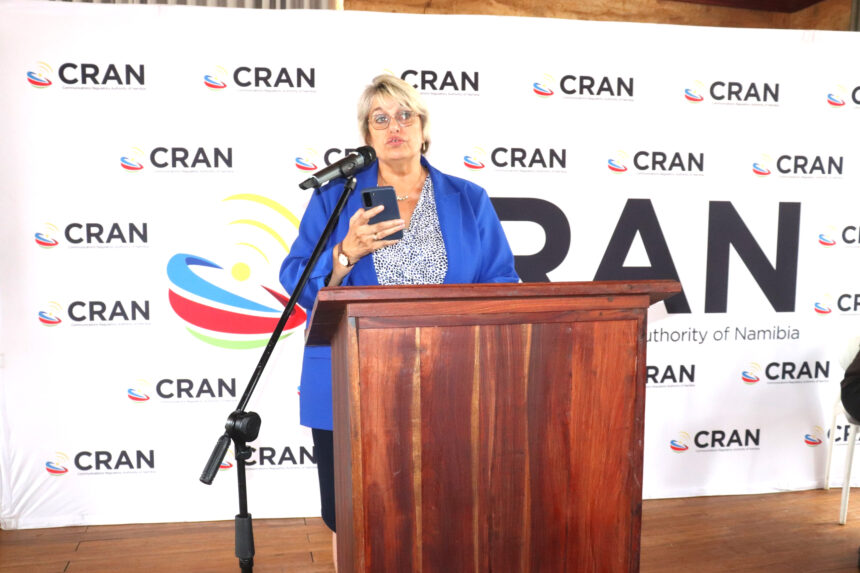As industry embraces automation and digital tools, there is a responsibility to ensure the workforce is equipped with the necessary skills to succeed in the evolving digital postal environment.
This was part of the message during a public consultation hosted this week by the Communications Regulatory Authority of Namibia (Cran).
Cran’s acting CEO Ronel le Grange highlighted the significance of the session, noting the transformative impact of e-commerce on the delivery of goods.
She stated that consumers now expect faster deliveries, enhanced tracking options and improved customer service.
The engagement focused on the development of a national e-commerce strategy from a regulatory perspective.
Cran’s involvement in this initiative follows its designation by government as a key stakeholder in the task force responsible for formulating the strategy, based on its regulatory mandate within the communications sector.
Le Grange stated that the postal service has a unique opportunity to lead the way in adopting sustainable practices.
This includes implementing faster and more efficient delivery solutions, advancing recycling programmes, reducing carbon footprints, embracing renewable energy and investing in eco-friendly packaging.
She emphasised that the choices made today will shape the legacy left for future generations.
The consultative meeting also formed part of an ongoing internal desktop study aimed at identifying areas within the postal and e-commerce value chain that may require regulatory intervention and prioritisation.
The insights from this study will be instrumental in shaping potential regulatory frameworks that may be needed as the government develops the national e-commerce strategy.
“To meet these expectations, we must invest in innovative solutions that harness technology for greater efficiency. This includes deploying advanced logistics systems powered by artificial intelligence and optimising our networks to improve service levels,” she said.
She stressed that Cran is committed to serving the public, while prioritising environmental sustainability.
Similarly, stakeholders have a duty to minimise the environmental impact of their operations.
Le Grange urged stakeholders to build trust, and foster meaningful relationships with the communities they serve.
This involves maintaining open channels for dialogue, listening to community needs and tailoring services to meet those needs effectively.



